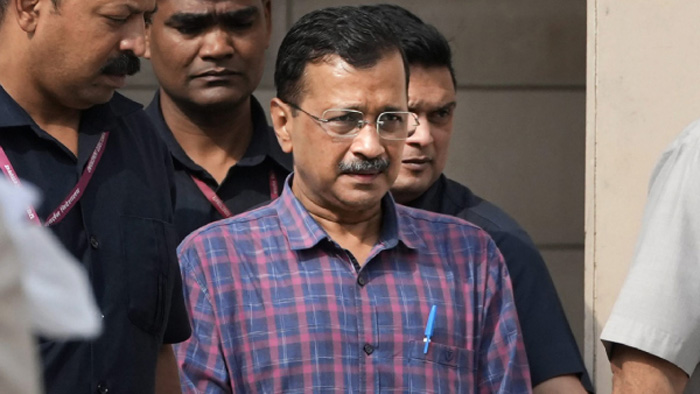In SC affidavit, ED blames Arvind Kejriwal’s ‘non-co-operative attitude, conduct’ for arrest
The Enforcement Directorate on Wednesday told the Supreme Court that there weren’t any “malafide or extraneous reasons” behind Delhi chief minister Arvind Kejriwal’s arrest.
In its reply to the AAP chief’s petition against his arrest, the agency claimed Kejriwal had what it called “non-co-operative attitude”.
The Enforcement Directorate claimed that Arvind Kejriwal’s conduct helped the agency take the decision to arrest him.
“The accused, by his conduct, has himself contributed and aided the investigating officer regarding the existence of the necessity to arrest, apart from the material in possession of the IO, to form the satisfaction that the petitioner is guilty of the offence of money laundering,” the agency said in its affidavit to the Supreme Court.
The Enforcement Directorate said Arvind Kejriwal’s petition challenging his arrest was “devoid of merit”. It claimed that the material in possession of the agency had been pursued by different courts.
“Regarding the contention pertaining to mala fide, it is submitted that not only the contentions of the petitioner is baseless and ill-founded but it is vague general and not specific,” news agency PTI quoted the ED as saying.
“Even on the date of the search during his interrogation while recording his statement under Section 17 of the PMLA (Prevention of Money Laundering Act), he was avoiding answering questions by being evasive and totally non-co-operative even with respect to simple non-incriminating questions,” ED added.
ED, justifying Arvind Kejriwal’s arrest, said the agency was of the opinion that custodial interrogation would lead to ‘a qualitatively more elicitation oriented’ questioning of the accused”.
The agency accused Arvind Kejriwal of blatant disregard for the law and non-co-operative attitude.
“Such an attitude also gave rise to a situation that confrontation with material in possession with the IO was not possible because the accused was totally non-co-operative and disobeyed a large number of summonses,” it said.
Before his arrest, Arvind Kejriwal had skipped nine summonses.
Meanwhile, reacting to the affidavit, AAP said the ED had become a machine of telling lies. It claimed that the agency comes up with manufactured lies at the behest of “their masters, the BJP”.
Arvind Kejriwal was arrested on March 21, in connection with a money laundering probe linked to the Delhi excise policy case.
On April 9, the Delhi high court upheld Arvind Kejriwal’s arrest, saying ED had little option but to arrest him as he skipped repeated summonses.
Kejriwal later moved the top court.
On April 15, the Supreme Court had sought a response from the ED over his petition.


Comments are closed.